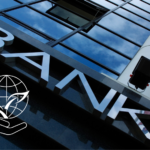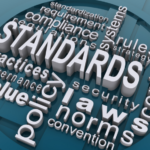As someone deeply involved in the sustainability field and President of the Center for Sustainability and Excellence (CSE), I see the findings of our latest 2025 research in Greece as both encouraging and concerning. ESG integration in Greek companies is no longer a trend—it’s a necessity. But are Greek companies truly embracing this transformation?
Key Findings from the CSE Research
This year’s study analyzed 160 Greek organizations publishing sustainability reports and revealed that:
-
94% of them follow GRI standards
-
89% align with the UN Sustainable Development Goals (SDGs)
-
Yet only 15 companies have received ratings from global ESG agencies such as Sustainalytics or CDP
-
And just 68% have sought external assurance for their reports
This data shows an active interest in ESG frameworks—but also highlights significant gaps in implementation, transparency, and credibility.
Challenges in a Shifting Regulatory Landscape
While more companies are adopting international standards, the pace of adaptation to the new Corporate Sustainability Reporting Directive (CSRD) remains slow. According to Greek Law 5164/2024, large public-interest companies must begin publishing reports in line with the European Sustainability Reporting Standards (ESRS) starting in 2025, with smaller entities phasing in by 2027.
Failure to act now will make compliance more difficult—and more costly—later.
My Personal Interpretation
The numbers tell part of the story, but experience tells the rest.
-
The high percentage of companies using GRI and aligning with SDGs is promising, but without external assurance, ESG claims remain vulnerable to scrutiny.
-
Quantifiable goals, such as net-zero emissions targets and ESG-linked executive incentives, are still missing from most Greek sustainability reports.
-
ESG ratings from independent organizations are not just for show—they help companies identify weaknesses, benchmark progress, and access sustainable financing.
What About SMEs?
One of the most overlooked areas is ESG integration among Small and Medium Enterprises (SMEs). A parallel 2025 study by the National Bank of Greece revealed that:
-
Over two-thirds of SMEs are interested in ESG
-
Only 22% have begun planning ESG-related activities
-
Just 12% have implemented any initiative
-
And only 3% have a structured ESG strategy in place
Despite this, one-third of SMEs that engaged in environmental or social actions reported increased revenues or reduced costs—a clear sign that sustainability pays off.
For me, this reinforces one truth: education and training are the gateway to action. If we don’t help SMEs build ESG literacy, they won’t close the gap in time.
The Role of Legislation and Training
The CSRD’s adoption into Greek law demands a strategic shift. Companies need to go beyond compliance and view sustainability as a competitive advantage. At CSE, we’ve addressed this urgency in our 2025 World ESG Summit, offering practical ESG compliance frameworks and helping executives prepare for double materiality assessments and third-party verification.
Training isn’t a luxury—it’s a strategic investment.
Final Thoughts: ESG as a Strategic Imperative
I urge business leaders, board members, and ESG professionals in Greece to:
-
Invest in external assurance for sustainability reports
-
Set quantifiable ESG goals and link them to organizational performance
-
Enable SMEs through education and partnerships
This is not merely a reporting requirement—it’s about resilience, trust, and long-term value creation. The companies that understand this early will lead the next generation of sustainable growth.









